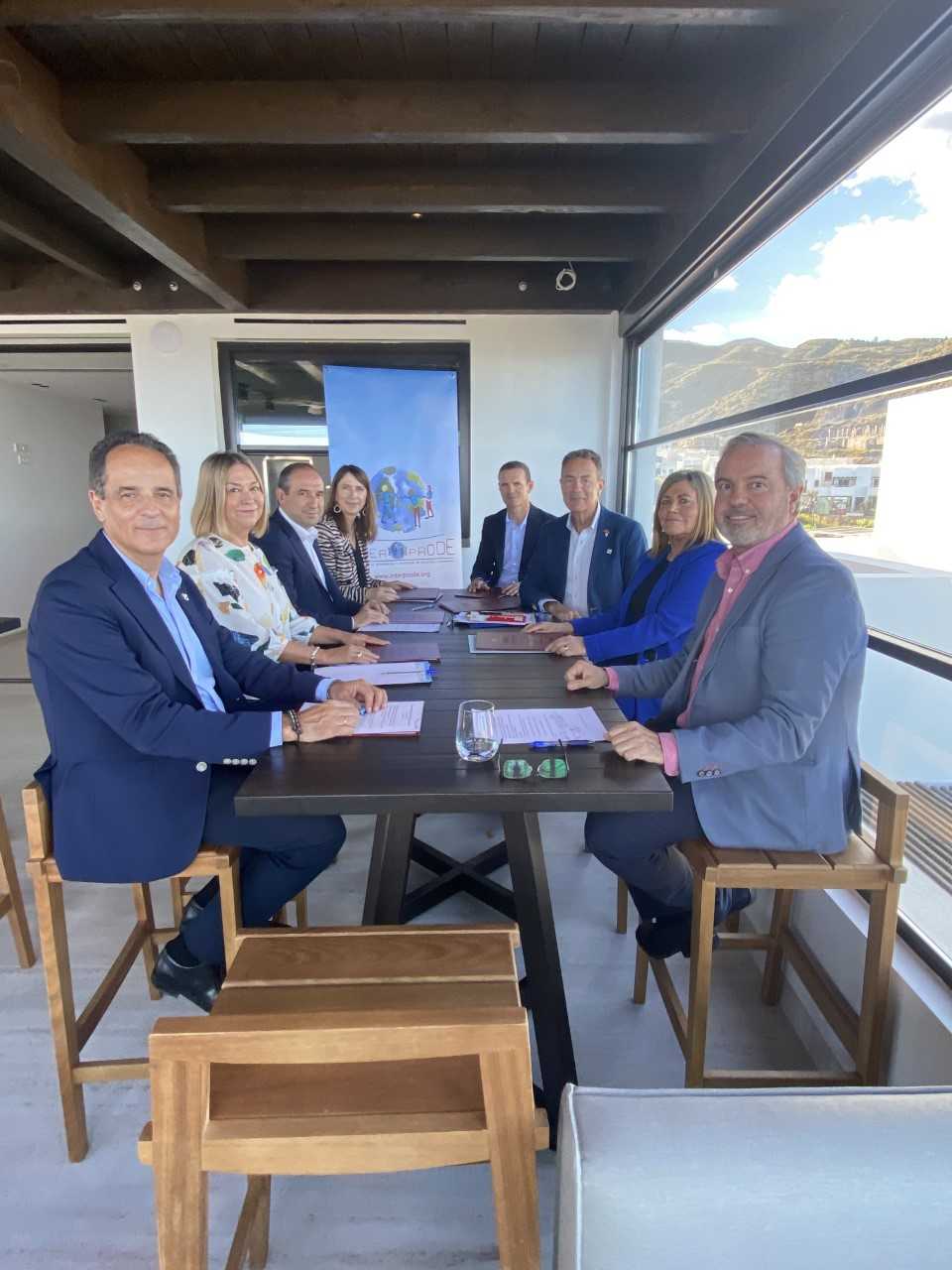As a culmination of the events that INTERPRODE has devoted to the 15th Anniversary of its foundation, last Friday, 20th October, it formed its own Scientific Advisory Committee, with the aim of turning this Organisation into a benchmark in the research and dissemination of empirical studies related to innovative methodologies and therapeutic procedures for direct intervention with minors and other vulnerable groups.
The first meeting of this collegiate body, which will guarantee the scientific quality of the experimental studies developed by the Research Group, took place at the Cosentino Group’s facilities in Macenas, Mojácar. This Committee, chaired by Judge Pilar Alfonso Rodríguez, is formed by outstanding figures from the academic, scientific and research fields of the University of Granada such as Professor of Criminal Law Esteban Pérez Alonso; Professor of Legal Medicine and Director of the Genetic and Oncology Research Centre (GENYO) José Antonio Lorente Acosta; Professor of Legal Medicine and International Reference in Gender Violence, Miguel Lorente Acosta and Doctor María Pérez Conchillo, specialist in Clinical Psychology and Sexology. On behalf of INTERPRODE, it´s President Mª Asunción García Bonillo (Social Worker) and members of the Research Group, Juan Miguel Tortosa Conchillo (Coordinator. Doctor in Economics and Master) and Antonio José Lucas Sánchez (Researcher, T.S. and Expert in Gender Violence) form part of this same team.
In addition to the inauguration and the signing of the operating regulations, the foundations were laid for the first work proposals to transform this experience into scientific knowledge that can be transferred to other institutions, public or private, always in the interest of improving the therapeutic and welfare system for the social and legal protection of minors.
At present, the association manages six residential centres distributed throughout the provinces of Jaén, Granada and Almería, in each of which different specific programs are carried out, ranging from “reception of unaccompanied foreign minors” to “social and workplace integration”, as well as specialisation in “behavioural problems”. In each of these centres, in addition to residential care, any required educational, social and therapeutic intervention is provided on a case-by-case basis.





